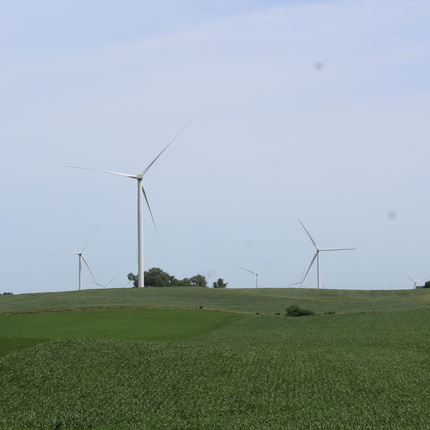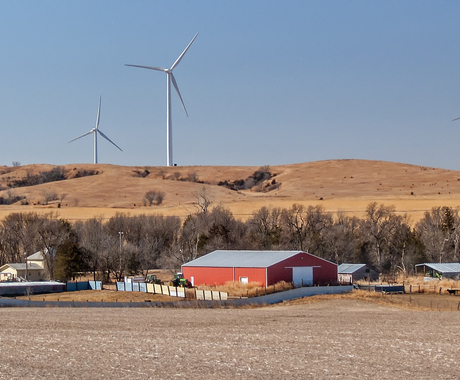By Mike Moen, Public News Service- Iowa
The wind-energy industry has a strong presence in states such as Iowa. But for more projects to move forward, a new report says local governments and developers need to be diligent in sorting out zoning issues.
Iowa is among the top ten states for renewable energy from wind farms. But it can still run into local opposition.
Lu Nelson, policy associate at the Center for Rural Affairs, says their analysis looked at setback ordinances, which define the minimum distance a wind turbine can be built from properties. He says zoning laws aren't a roadblock for development, and that projects usually adhere to them.
But he says there are some commonalities.
"One of the issues is that if the setback standards are too restrictive, they can absolutely stop the development of any wind energy in a county," says Nelson. "Or greatly reduce the number of landowners that can take advantage of hosting a turbine."
Nelson says that's why it's important for county governments to be clear about their standards, but also recognize the effects they can have on future development.
The report also says developers need to work with local leaders in effectively communicating with property owners about the status of a project.
Along with Iowa, the report looked at setback ordinances in South Dakota and Nebraska.
In examining all three states, Nelson says they found a wide range of distance standards. He says that underscores the idea that a localized effort helps stakeholders define what works best for them, as opposed to a one-size-fits-all approach.
"I think the real key is just make sure that it is finding that right set of zoning requirements to allow for development," says Nelson, "while also achieving different priorities that local officials might have. "
Other groups, such as the National Conference of State Legislatures, say uniform laws could benefit development by not forcing projects to navigate a regulatory maze.
Last year, Madison County passed Iowa's first moratorium on wind turbines amid concerns from local residents about their health effects. But many studies have found that the machines do not pose a threat to a person's health.





